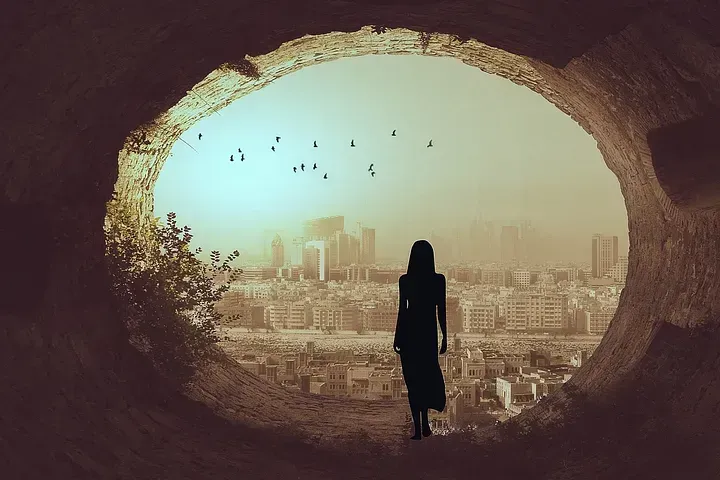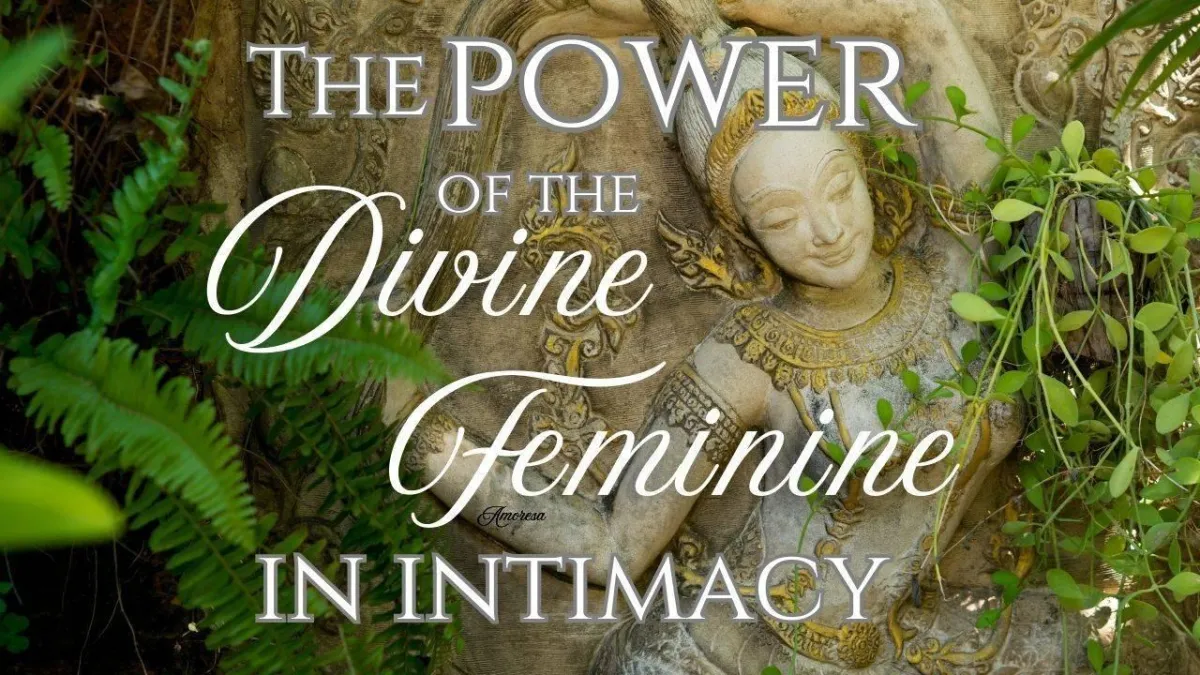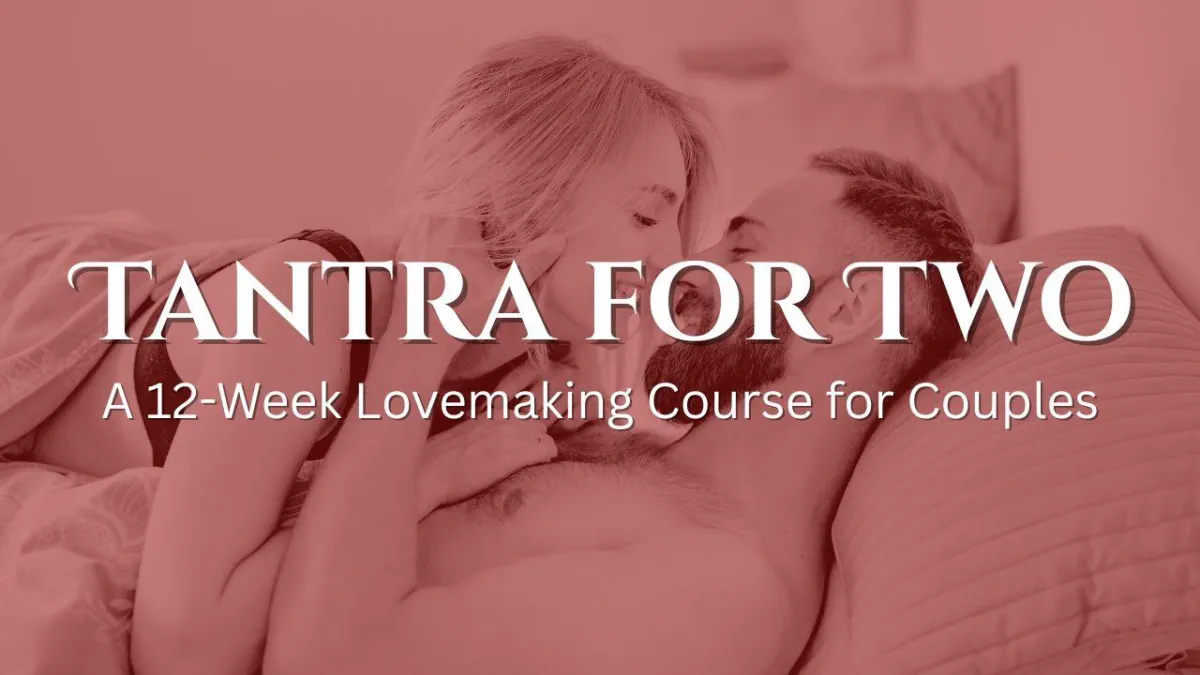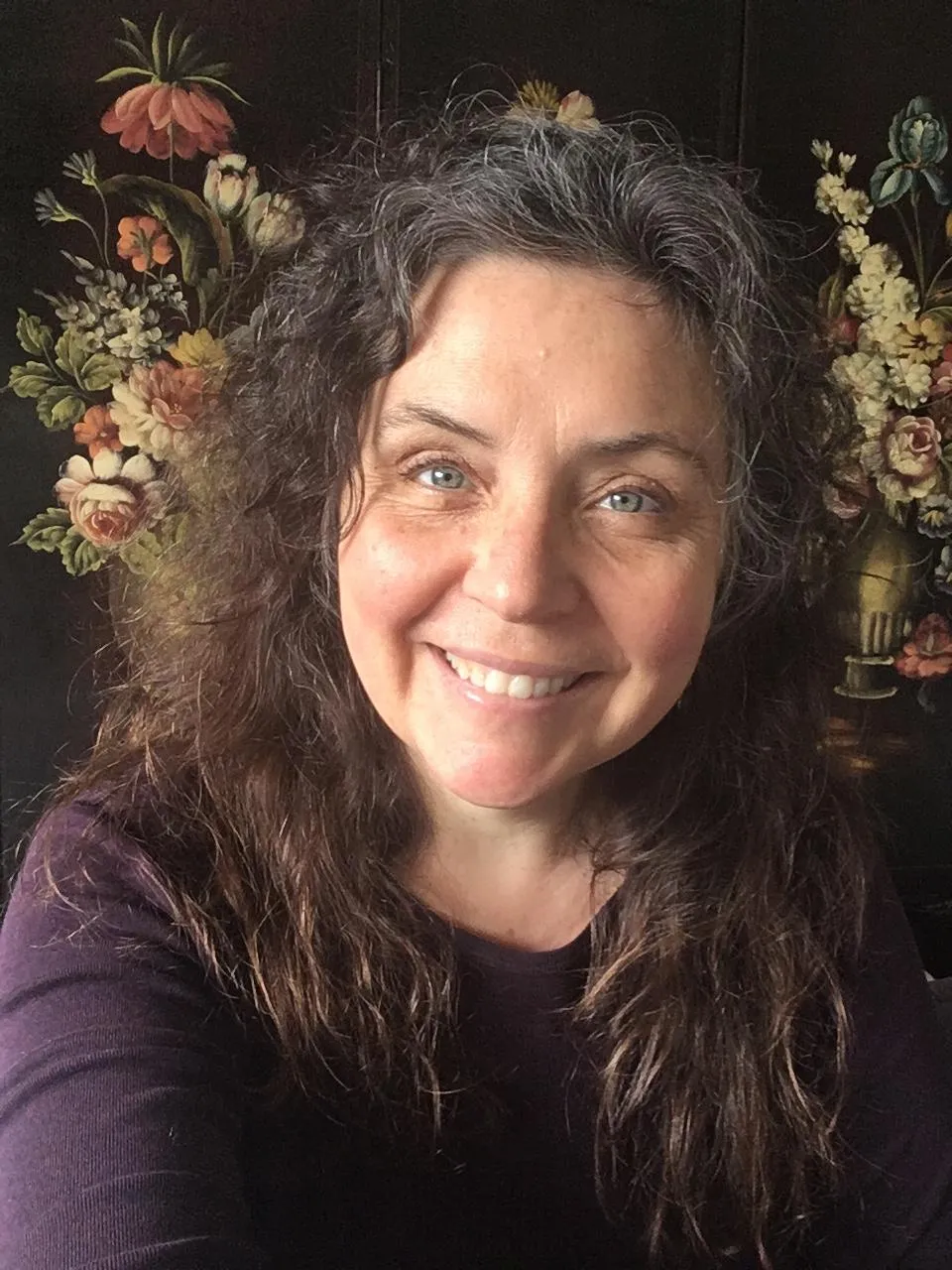
How Our Misunderstandings of Harem Life Teach us So Much About the True & Powerful Feminine
An amazing journey with Scheherezade, the heroine of Arabian Nights
I just finished reading a fascinating book called "Scheherezade Goes West". It is the story of a woman who wrote several books about being raised inside a harem in Morocco. When she went on her book tour, one of the first questions many male reporters would ask her was, “So, you were actually born in a harem?” And then they would smile at her.
This confused her to no end. Why would they smile about women being kept in prisons? What could they possibly think a harem was and where would they get these ideas from?
This article is part book report and a few of the “WOW” moments for me as I read it. We will explore why the Western perspective on women causes us to completely misunderstand the stories from Arab cultures, but most importantly, we will look at how this discrepancy teaches us about the true nature of the wild, free, and incredible feminine!
Who is Scheherezade?

The book "One Thousand & One Nights", or "Arabian Nights" is the story of King Shahrayar whose wife cheated on him with one of his slaves. He was so angry and heartbroken that he vowed to marry a new virgin every night and then kill her in the morning. Eventually, his people started rising against him — obviously furious that their daughters were being killed by this madman!
His lead advisor had no idea how to stop this. However, he had two daughters, one being Scheherezade, and she had a plan. She told her father to allow the king to marry her and she would solve this problem and put an end to the killings. She married the king and began to tell him a story all through the night. But at dawn, her lips fell quiet, the story not finished.
Well, Shahrayar desperately wanted to hear how the story ended, and so spared her life until the next night, when she would continue the story and start another, allowing her lips to fall silent again at dawn, not finishing the story.
She did this every night for one thousand and one nights. On the final night, he realized that he loved her and stopped his mad killing spree.
These stories were told by oral tradition for years and one day were written down in “One Thousand and One Nights”. From here they travelled West and were interpreted by other cultures… hence the name of this awesome book: “Scheherezade Goes West”.
Let’s explore how what happened to these stories teaches us about the feminine!
The Divine Feminine is Uncatchable (and what happens when stories are changed)
The pursuit of the feminine is primary to keeping the fires of passion alive in our romantic relationships. However, this is often the first thing that disappears once you “catch” your partner. While the masculine partner is pursuing the feminine in dating (if this even happens), they make great effort to woo and impress. They want to make a good impression. They want to turn her head and make an intimate connection.
If we are lucky, this continues for the first couple of years of the relationship. But oftentimes, it disappears quite quickly — sometime around when they become “committed” to the relationship. The feminine has been caught. There is no need to pursue any longer.
Fatema, the author, tells the story of “The Woman in the Feather Dress” which was told to her by her grandmother, Yasmina, who said that this was the most important story that she must always remember!
I would like to let Fatema tell the story because her version is so beautiful.
“The story opens in Baghdad… Hassan, a handsome but bankrupt youth who had squandered his entire fortune on wine and gallant company, sailed away to strange islands to seek his fortune. Gazing at the sea from a high terrace one night, he was struck by the graceful movements of a large bird who had alighted on the beach. Suddenly the bird shed what turned out to be a dress made of feathers, and out stepped a beautiful naked woman, who ran to swim in the waves. “She outdid in beauty all human beings. She had a mouth as magical as Solomon’s seal and hair blacker than the night… She had lips like corals and teeth like strung pearls… Her middle was full of folds… She had thighs great and plum, like marble columns.” But what captivated Hassan Basri the most was what lay between her thighs: “a goodly rounded dome on pillars born, like a bowl of silver or crystal.”
“Smitten with love, Hassan stole the beauty’s feather dress while she was swimming and buried it in a secret tomb. Deprived of her wings, the woman became his captive. Hassan married her, showered her with silks and precious stones, and when she bore him two sons, relaxed his attentive tenderness, believing that she would never again think about flying. He started traveling on long trips to increase his fortune, and was astonished to discover one day when he returned that his wife, who had never stopped looking for her feather dress, had finally found it and flown away. “Taking her sons in her bosom, she wrapped herself in the feather dress and became a bird, by the ordinance of Allah to whom belongs might and majesty. Then, she walked with a swaying and graceful gait and danced and sported and flapped her wings…” flying away over deep rivers and turbulent oceans to reach her native island of Wak Wak. Yet before leaving, she left a message for Hassan: He could join her if he had the courage to do so. But no one knew then, and still less knows now, where the mysterious “Wak Wak” — land of exoticism and faraway strangeness — is located. Arab historians… situated it in East Africa, beyond Zanzibar… others believe it to be the land of the Amazons, or the “female island” of Socotra. Others think it’s the Seychelles, Madagascar, or Malaca, etc.” ~ Scheherezade Goes West
This is when things get interesting about the nature of the feminine. The story according to the oral tradition that Yasmina shared ends with Hassan travelling the world trying to find his family… but to no avail.
However, in the book (written by men), he finds his family and they return home to him and they live happily ever after.
First of all, we have to wonder how many of our myths were changed ever so slightly to allow the feminine to be caught, submissive, polite, etc. These mythologies create the foundation for how we understand ourselves. Imagine the difference between two women’s experiences — one learning the version of the uncatchable feminine and one who ends up in captivity no matter what!
Secondly, this shows us the beauty of this uncatchable woman who gracefully flies around the world. Imagine if we understood the feminine this way! The masculine would perpetually pursue his partner. The fires of romance would never die. Romance could live for decades, only getting richer and richer every year!
The Divine Feminine is Equal to the Masculine
Fatema was raised to believe that women and men were equal according to the Koran. In fact, she was raised with visions of women on horseback, intelligent women, and women who were meant to be nomadic and travel. She talks about how this is part of why there are laws to keep women imprisoned in harems. Because of the foundational belief that women are fierce and will not be obedient, the men in power created laws to control them in this way.
PLEASE NOTE: I am aware that all of these laws and their effects are nuanced and can’t be explained in a little article nor does what I’m saying or even what she wrote about in her book represent all Muslim countries by a long shot. I am not making a commentary on Sharia law or any other extremist viewpoint here… We’re just exploring different ideas of what women and the feminine are all about.
This is why she was so confused by the male reporters’ smiles at the mention of a harem. Her experience of harems was that they were prisons. Within those prisons were angry and defiant women and the men were often terrified of losing their power over them.
However, the Western man has a very different perspective (in general… obviously this isn’t the opinion of ALL men). In Christian teachings, women are less than men. They are the cause of the fall from Eden. They are the seductresses and tricksters. They can’t be trusted and they need a man to make their decisions.
It is only in recent times, that the laws are starting to change to reflect our actual equality.
I found this quite interesting — that in Fatema’s culture, religion taught that women and men were equal and then men created laws to control the women. Whereas, in our Christian cultures, religion taught that women were less than men and the laws simply reflected those for a long time and are now being adjusted to create equality.
Can you imagine how differently we would think of ourselves if on a spiritual level, we inherently knew that women were equal and it was just silly man’s law controlling us versus, on a spiritual level, believing that we were not worthy and we needed the law to convince us and everyone else that we are equal.
I think that this would change everything.
Women Do Have Brains
The other thing that the author found was that, in the harem fantasy of the Western man, the women were quite brainless. They were often thought to be young nymph-like bellydancers with nothing to think about other than when they could next sexually service their sultan/king/captor.
The author couldn’t fathom that the reporters could actually think that women would not have thoughts, desires, and hopes and would HAPPILY live to sexually service a man, waiting their turn in relative peace and obedience.
The creepy thing for me is realizing how many of us Western women have been taught to be obedient to men on a deep and subtle level. Yes, we are now equal and independent women… I know. I have an Honours Mathematics Degree. I am a free woman. I know.
And yet, when I was first married thirty years ago, a kind of spell came over me and I suddenly was living to make my husband comfortable. His dreams became my dreams. I took his name. I joined his clan… and theoretically, I was an independent computer programmer from Toronto!
I have been teaching tantra, sacred sexuality, and specifically about the masculine and feminine for nearly 15 years and the number one thing that nearly everyone (both genders) struggles with is respecting the feminine — mostly the feminine within.
Women struggle to speak their truth. They struggle with self-worth. Deep down, many (even people close to me) still kowtow to men’s desires, shortcomings, and unresolved issues. Why? For attention. To feel loved. To feel worthy.
It’s like they didn’t need to lock us up over here. We were taught to create our own prisons. Then we decorated them telling ourselves how happy we are… while half the population is downing Prozac, alcohol, and other substances because they are struggling with so much depression and anxiety.
Imagine that in other cultures, women are oppressed from the outside in… but here, we oppress ourselves from the inside out.
Men Loving Intelligent Women
“To seduce an intelligent woman who is concerned about the world, a man has to become the master of erotic art. When in the company of Scheherazade, Shahrayar’s lovemaking reaches its full potential.” ~ Scheherezade Goes West
I have to include this because I just love it — to imagine a world where we fully embrace the brilliance and freedom of the feminine.
When the king realizes how brilliant and powerful Scheherezade is, he had to up his game. He had to dig deep within to keep her happy sexually.
The ironic thing about this is that the number one reasons that men want to study Tantra is to become great lovers. Perhaps the key is for them to fully embrace the intelligence and infinite nature of their partners.
When we know that a task is daunting, we dig deep and discover that we are stronger than we thought. We discover that we have abilities that hadn’t been necessary up until this point, but once tapped, are now readily available.
Just think of the incredible lovers this would create in the world!
My Big Takeaways
Personally, I walk away from this book with the vision of the Woman in the Feather Dress. I can feel this wonderful freedom. Does it mean that I will never have a committed relationship? No. It’s very possible that if Hassan had accepted her freedom, she may have chosen to have a relationship with him. It might not have been as controlled as he would have chosen… but he would have still been able to love her.
Similarly, when we all (all genders) embrace our deep and wild feminine, life is always exciting. We are always open to the next adventure and we perpetually pursue the Divine Feminine within as well as in relationships.
I am also looking at all of the myths and stories I was raised on. What if they were changed slightly? What if the written story that has reached us has been altered to allow those in power to control us from the inside — planting a vision in our minds that becomes how we see the world? And this vision doesn’t benefit or empower us at all.
I also think of how often women are still afraid to admit that we are intelligent, amazing beings! How we still reduce ourselves to sexual feasts for others. We think that the size of our thighs or breasts still define us more than our thoughts.
Overall, I’m so inspired and intrigued to learn more about this mysterious version of how women see themselves around the world, and to learn about it through their own thoughts, and not through the filter of our Western minds.






